Warren Buffett’s 11 Best Stocks of the Bear Market
Warren Buffett's Berkshire Hathaway (BRK.B) puts up market-clobbering returns over the long-term, but more recently it's been a struggle.

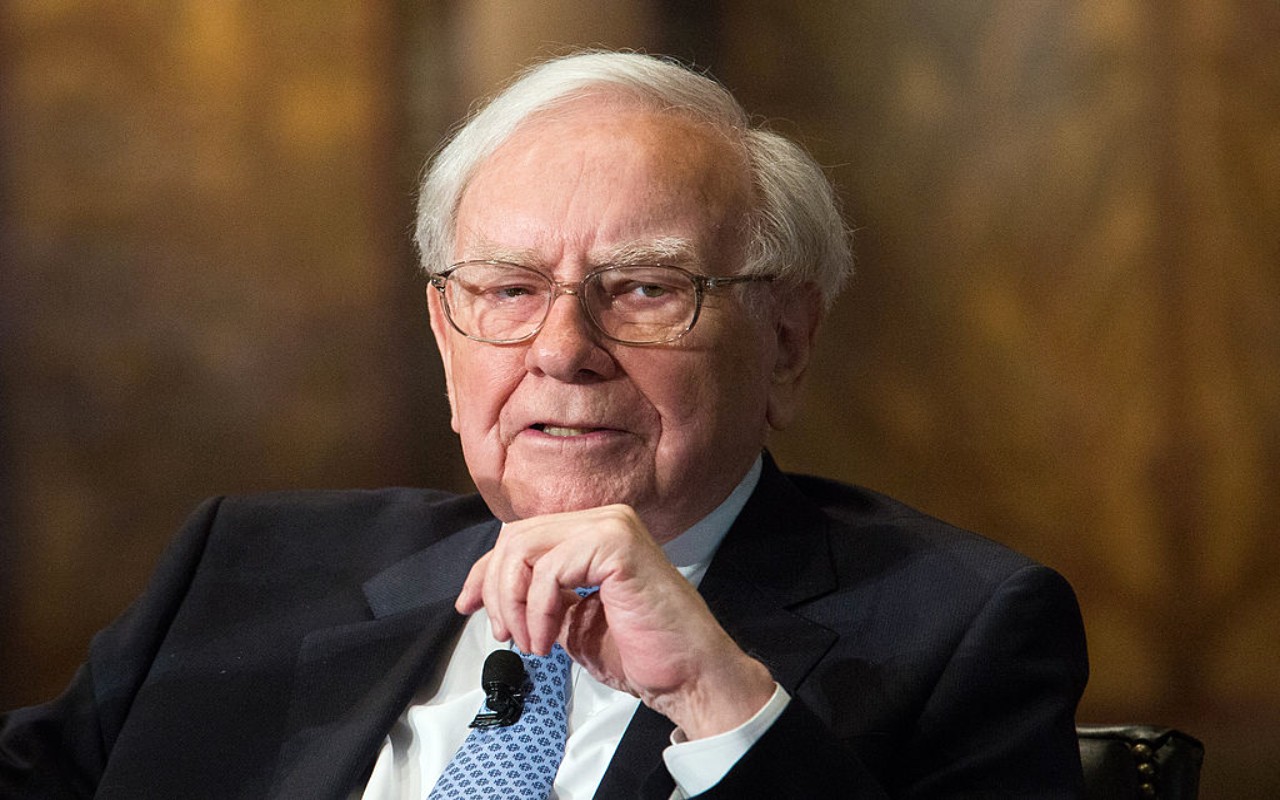
Profit and prosper with the best of Kiplinger's advice on investing, taxes, retirement, personal finance and much more. Delivered daily. Enter your email in the box and click Sign Me Up.
You are now subscribed
Your newsletter sign-up was successful
Want to add more newsletters?

Delivered daily
Kiplinger Today
Profit and prosper with the best of Kiplinger's advice on investing, taxes, retirement, personal finance and much more delivered daily. Smart money moves start here.

Sent five days a week
Kiplinger A Step Ahead
Get practical help to make better financial decisions in your everyday life, from spending to savings on top deals.

Delivered daily
Kiplinger Closing Bell
Get today's biggest financial and investing headlines delivered to your inbox every day the U.S. stock market is open.

Sent twice a week
Kiplinger Adviser Intel
Financial pros across the country share best practices and fresh tactics to preserve and grow your wealth.

Delivered weekly
Kiplinger Tax Tips
Trim your federal and state tax bills with practical tax-planning and tax-cutting strategies.

Sent twice a week
Kiplinger Retirement Tips
Your twice-a-week guide to planning and enjoying a financially secure and richly rewarding retirement

Sent bimonthly.
Kiplinger Adviser Angle
Insights for advisers, wealth managers and other financial professionals.

Sent twice a week
Kiplinger Investing Weekly
Your twice-a-week roundup of promising stocks, funds, companies and industries you should consider, ones you should avoid, and why.

Sent weekly for six weeks
Kiplinger Invest for Retirement
Your step-by-step six-part series on how to invest for retirement, from devising a successful strategy to exactly which investments to choose.
Warren Buffett's Berkshire Hathaway (BRK.B) puts up market-clobbering returns over the long-term, but more recently it's been a struggle. There's no sugar-coating it: The Oracle of Omaha has had a rough ride through the current bear market.
The S&P 500, which has recovered somewhat from the depths, was down 18.8% from the February market top through April 8. The average return across all of Warren Buffett's stocks, however, has been a loss of 28.0%.
The Berkshire Hathaway portfolio was built to deliver market-beating return over the long haul, not thrive in a global pandemic. Many of Buffett's best stocks of late are growthier plays that have turned tail. He's hardly alone in that, but particularly damaging has been Uncle Warren's vast holdings in financials, one of the market's worst sectors so far. His ownership stakes in major airline stocks have likewise been gashed.
Some of Berkshire's holdings, however, have held up considerably better than the overall market – and a number of them are newer positions, including a few stocks Buffett and his lieutenants picked up just last year.
Here are Warren Buffett's 11 best stocks of the bear market. Some of these stocks are tried-and-true, old-school value names you typically associate with the famed investor. A few of them, however, exemplify Berkshire's slow but sure shift toward more modern businesses.
Price and yield data is as of April 8. Percent of portfolio as of Berkshire Hathaway's SEC Form 13F filed Feb. 14, 2020, for the reporting period ended Dec. 31, 2019. Data from Berkshire's Form 13F and WhaleWisdom. Dividend yields are calculated by annualizing the most recent payout and dividing by the share price.

Liberty Global
- Market value (Class A shares): $11.6 billion
- Dividend yield (Class A shares): N/A
- Percent of portfolio (Class A and C shares): 0.03%
- Date first acquired: Q4 2013
- Performance since Feb. 19: -12.1% (vs. -18.8% for the S&P 500)
Liberty Global – which Buffett owns via its Class A (LBTYA, $18.27) and Class C (LBYTK, $17.30) shares – bills itself as the world's largest international TV and broadband company, with operations in seven European countries. It's also one of several Berkshire bets on communications and media companies whipped up by billionaire dealmaker John Malone.
The company's positioning in broadband – practically a necessity before the coronavirus, but certainly moreso now as much of the world's population is confined to their homes – has helped it withstand some of the bear market's downturn so far. Though its TV operations are sure to take a hit thanks to drawbacks in advertising.
Rumors had the company buying Univision for $9 billion, but CEO Mike Fries shot that down in February during the company's most recent quarterly report. That said, Liberty Global does plan to extend its international partnership with Netflix (NFLX).
Berkshire first picked up the Class A shares during the fourth quarter of 2013. The holding company then picked up the non-voting Class C shares a quarter later. Data from S&P Global Market Intelligence shows that Berkshire Hathaway owns a collective 3.7% stake in Liberty Global. Berkshire also is Liberty's fifth-largest shareholder.
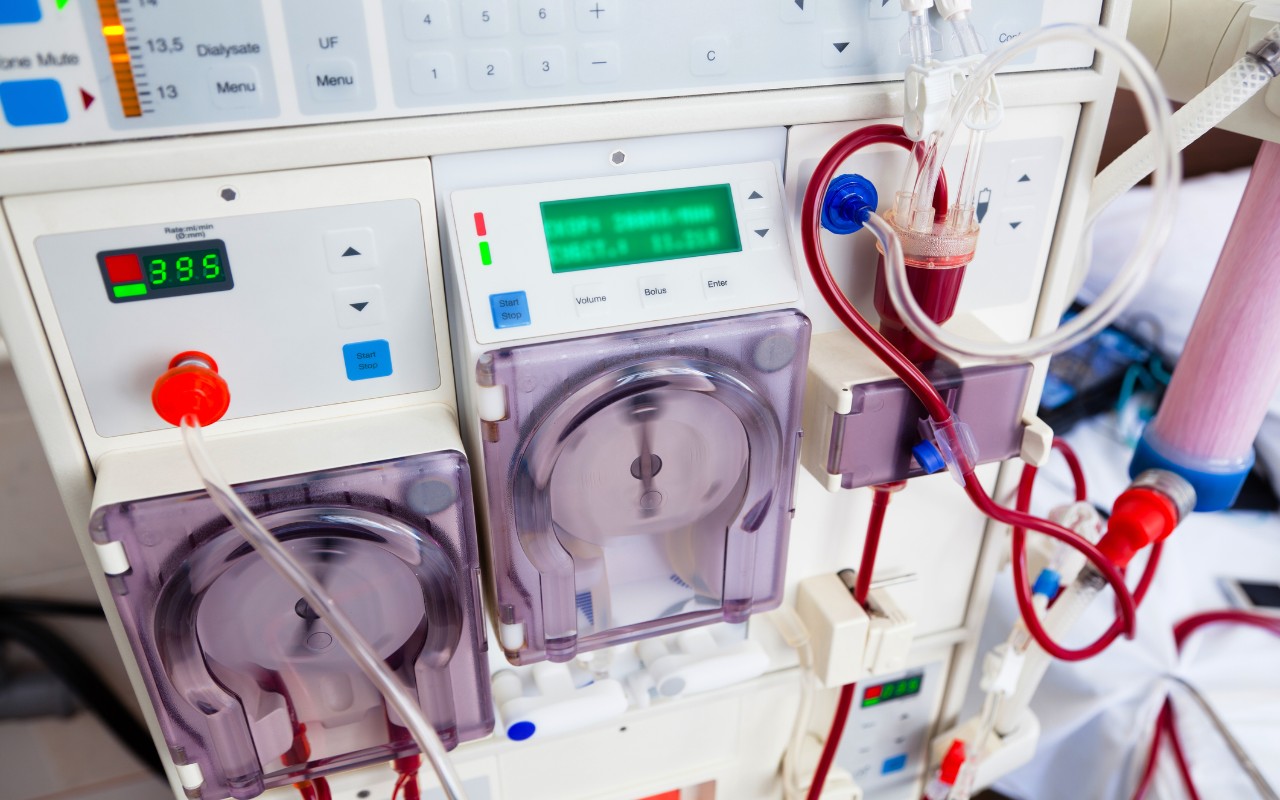
DaVita
- Market value: $9.7 billion
- Dividend yield: N/A
- Percent of portfolio: 1.20%
- Date first acquired: Q4 2011
- Performance since Feb. 19: -10.0%
- DaVita (DVA, $76.96), which provides kidney care and operates dialysis centers, serves patients via more than 3,000 dialysis centers in the U.S. and nine other countries. Aging baby boomers and a graying population in many developed markets are broadly expected to provide the company with a strong, secular tailwind.
Naturally, dialysis is one health care treatment that simply can't go to the wayside, regardless of both the current health care and economic crisis. And in fact, the company is advocating for its patients during the pandemic, recently urging hospitals and other health systems not to limit care to end-stage kidney disease patients afflicted with the coronavirus.
Berkshire disclosed a position in DaVita during 2012's first quarter. Given that DVA was a large position of Ted Weschler's Peninsula Capital in his pre-Berkshire days, it wasn't unreasonable to assume that it was his pick. And Weschler actually confirmed as much a couple years later.
Buffett hasn't touched the position in years, but Berkshire remains DaVita's largest shareholder by a wide margin. Its stake of 38.6 million shares accounts for more than 24% of DVA's shares outstanding.
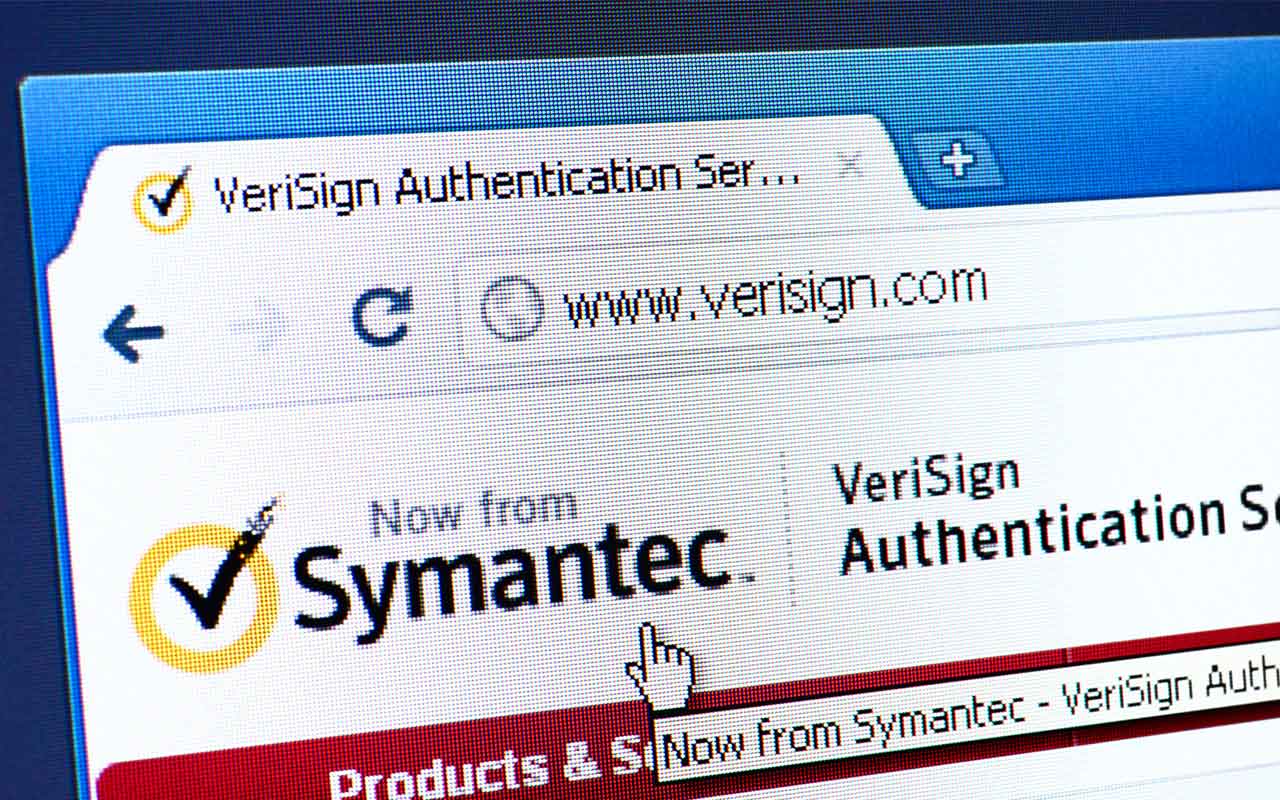
Verisign
- Market value: $22.5 billion
- Dividend yield: N/A
- Percent of portfolio: 1.03%
- Date first acquired: Q4 2012
- Performance since Feb. 19: -8.5%
Warren Buffett's good fortune with Verisign (VRSN, $193.20) continues.
Stocks aren't good or bad in a bubble – one investor's brilliant purchase often is, depending on timing, another investor's biggest failure. The example of Verisign – an internet infrastructure service company that quite literally keeps the world connected online and acts as a domain registry for the .com, .net and other top-level domains – comes to mind.
Stanley Druckenmiller, a famed former hedge fund manager, made a $200 million short on tech stocks in early 1999 while investing for George Soros' Quantum Fund, but lost $600 million in the trade. He then tried to win it back via a big $6 billion buy-in of tech stocks including Verisign … but he lost $3 billion in six weeks as VRSN and several other recent purchases flopped, making it one of the "smart money's" worst stock calls of all time.
But the Oracle of Omaha has had an entirely different experience.
Berkshire bought Verisign, whose dominance of the space exemplifies Buffett's love of deep moats, during a dip in the final quarter of 2012. The roughly 3.7 million shares were purchased at an average cost of $38.82 per share. VRSN has returned nearly 400% since the end of 2012, well more than triple the S&P 500's roughly 124% return including dividends.
That includes a fantastic period of outperformance as one of Buffett's best stocks during the bear market. VRSN shares have lost just less than 9% so far – half the damage the S&P 500 has sustained since Feb. 19.
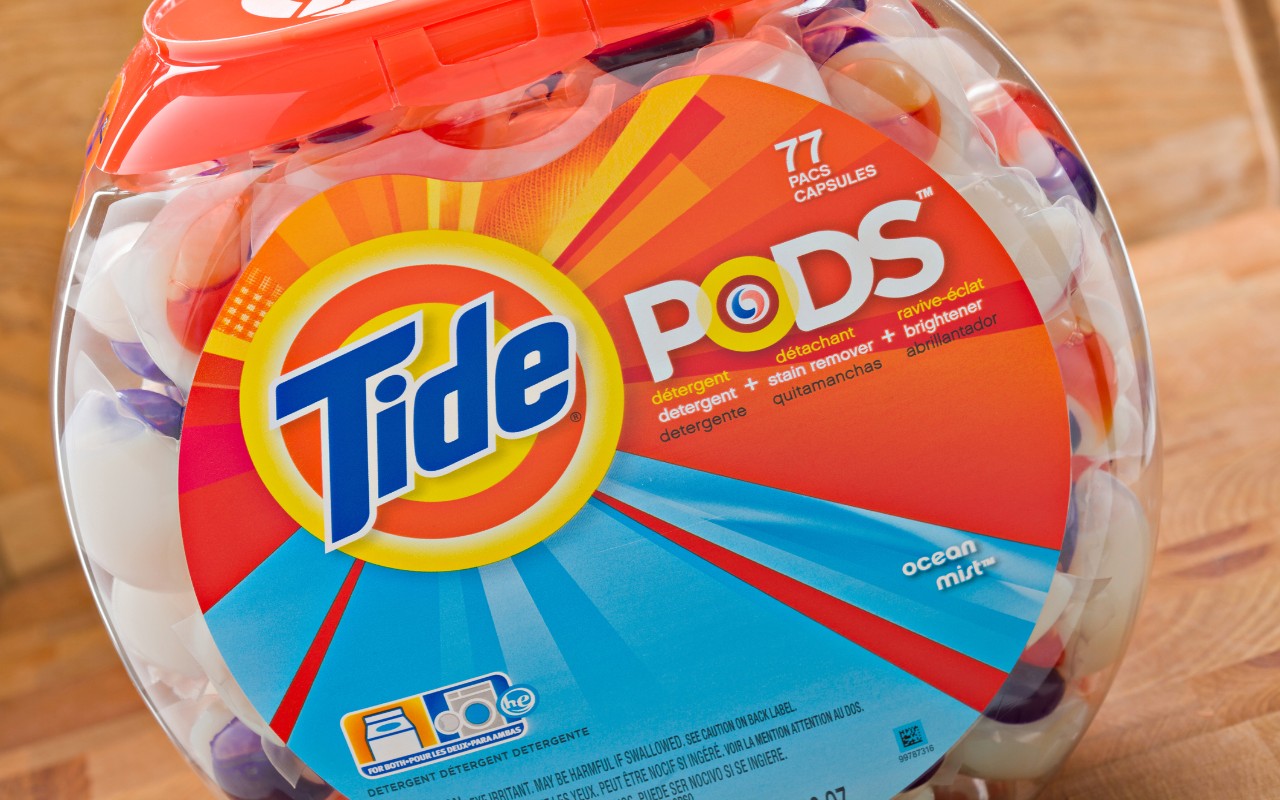
Procter & Gamble
- Market value: $284.2 billion
- Dividend yield: 2.6%
- Percent of portfolio: 0.02%
- Date first acquired: Q1 2005
- Performance since Feb. 19: -8.2%
It's no surprise that Procter & Gamble (PG, $115.10) is one of Buffett's better bets throughout the bear market. Thanks to stay-at-home and similar orders in the U.S. and around the world, a lot of consumer spending has been concentrated to the basics – food, toiletries and the like – produced by consumer staples stocks.
As a result, Procter & Gamble – the name behind brands including Crest toothpaste, Pampers diapers, Tide detergent, and most importantly Bounty paper towels and Charmin toilet paper – has been a smooth operator, outperforming the broader market by about 10 percentage points throughout the bear market.
Interestingly, while P&G is among several Dow stocks in Buffett's portfolio, it's also a blue chip that has fallen by the wayside as a Berkshire Hathaway investment.
Buffett came to own P&G via his holding company's 2005 acquisition of razor-maker Gillette. At the time, Buffett, a major Gillette shareholder, called the tie-up a "dream deal." Procter & Gamble became one of BRK.B's biggest equity positions.
That dream didn't last very long. The Great Recession eroded the pricing power of old-line consumer staples companies such as P&G. The company embarked on a plan to shed 100 underperforming brands. The Duracell battery business happened to be on the list, and Berkshire bought it in 2014 in exchange for PG stock. Two years later, Buffett pared what was left of the P&G stake by 99%. He hasn't added to the position since.

United Parcel Service
- Market value: $84.8 billion
- Dividend yield: 4.1%
- Percent of portfolio: 0.003%
- Date first acquired: Q1 2006
- Performance since Feb. 19: -7.5%
- United Parcel Service (UPS, $98.79) has been particularly resilient throughout the downturn. While its business services have no doubt been cramped because of the coronavirus, the rise in e-commerce shipments as people have more delivered to their homes has acted as ballast for the international shipper.
Also, UPS and rival FedEx (FDX) recently received some welcome news, as Amazon.com (AMZN) announced it would be halting the pilot of its shipping service that competed with the two legacy providers.
Too bad UPS is effectively a meaningless position.
At fewer than 60,000 shares, Berkshire's stake in United Parcel Service is a rump position, leftovers, an odd lot. Buffett entered his UPS position during the first quarter of 2006, purchasing 1.43 million shares worth about $113.5 million at the time. That comes to an average price per share of $79.38. However, UPS never grew to be a major part of Berkshire's portfolio, and Buffett has pared the position over the years to where it wouldn't be a surprise if he exited the stake at any time.
The reason? Likely performance. Since March 31, 2006, UPS shares have delivered a total return of just 88%, compared to 185% for the broader market.
Translation: UPS, while sitting among Buffett's best stocks since mid-February, has been a long-term bust.

Biogen
- Market value: $55.2 billion
- Dividend yield: N/A
- Percent of portfolio: 0.08%
- Date first acquired: Q4 2019
- Performance since Feb. 19: -7.1%
- Biogen (BIIB, $316.95) is among the newest Buffett stocks, and it's another health care play that has managed to stay mostly afloat throughout the downturn. This company's products include a host of MS treatments, including Avonex, Tysabri and Zinbryta, though it also has leukemia and hemophilia drugs as well.
That said, its fates are most heavily tied at the moment to its Alzheimer's treatment. Many expect the company to seek out FDA approval for aducanumab this year. And because neither that, nor its current product pipeline, are terribly impacted by the coronavirus pandemic, BIIB shares have endured minimal losses.
Berkshire Hathaway has plenty of health care holdings, so Biogen is a natural fit. However, at 650,000 shares worth more than $192 million as of Berkshire's last 13F, it's not a huge stake. It represents less than a tenth of a percent of BRK.B's equity portfolio, and Berkshire isn't even in Biogen's top 25 shareholders by stake size.
Despite Buffett's history of health care bets, the small stake size indicates this investment might be the idea of lieutenants Ted Weschler or Todd Combs. But the company is inexpensive compared to earnings and generates several billion dollars of cash flow each year, so Biogen is right at home in Berkshire's portfolio.
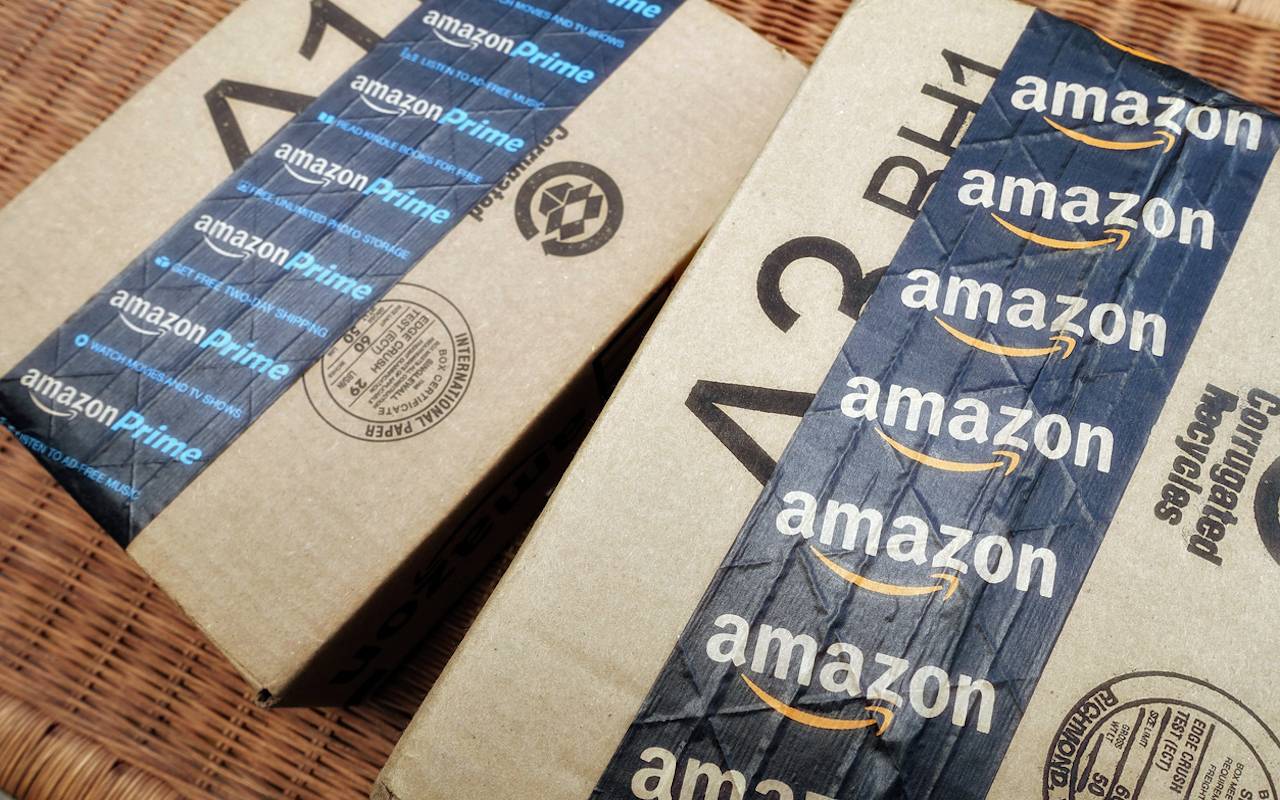
Amazon.com
- Market value: $1.0 trillion
- Dividend yield: N/A
- Percent of portfolio: 0.41%
- Date first acquired: Q1 2019
- Performance since Feb. 19: -5.9%
- Amazon.com (AMZN, $2,043.00) is one of Berkshire Hathaway's splashiest new stock picks of the past year or so. The holding company disclosed its 483,300-share position after the first quarter of 2019, then added another 54,000 shares in Q2.
It's also been an unsurprising outperformer throughout the coronavirus outbreak. Not only has its home delivery proven vital to its customers as they remain homebound, but its Prime Video streaming content is getting more play. Not to mention, any companies that use its Amazon Web Services cloud platform can't just pull the plug as they try to remain operational.
This one wasn't Buffett's idea, by his own admission. Before Berkshire Hathaway submitted its first-quarter regulatory filing with the Securities and Exchange Commission, Buffett told CNBC: "One of the fellows in the office that manage money ... bought some Amazon, so it will show up (when that file is submitted)."
Buffett has long been an admirer of Amazon CEO Jeff Bezos, he admitted in an interview, and said he wished he'd bought the stock sooner.
"Yeah, I've been a fan, and I've been an idiot for not buying" AMZN shares, Buffett told CNBC.
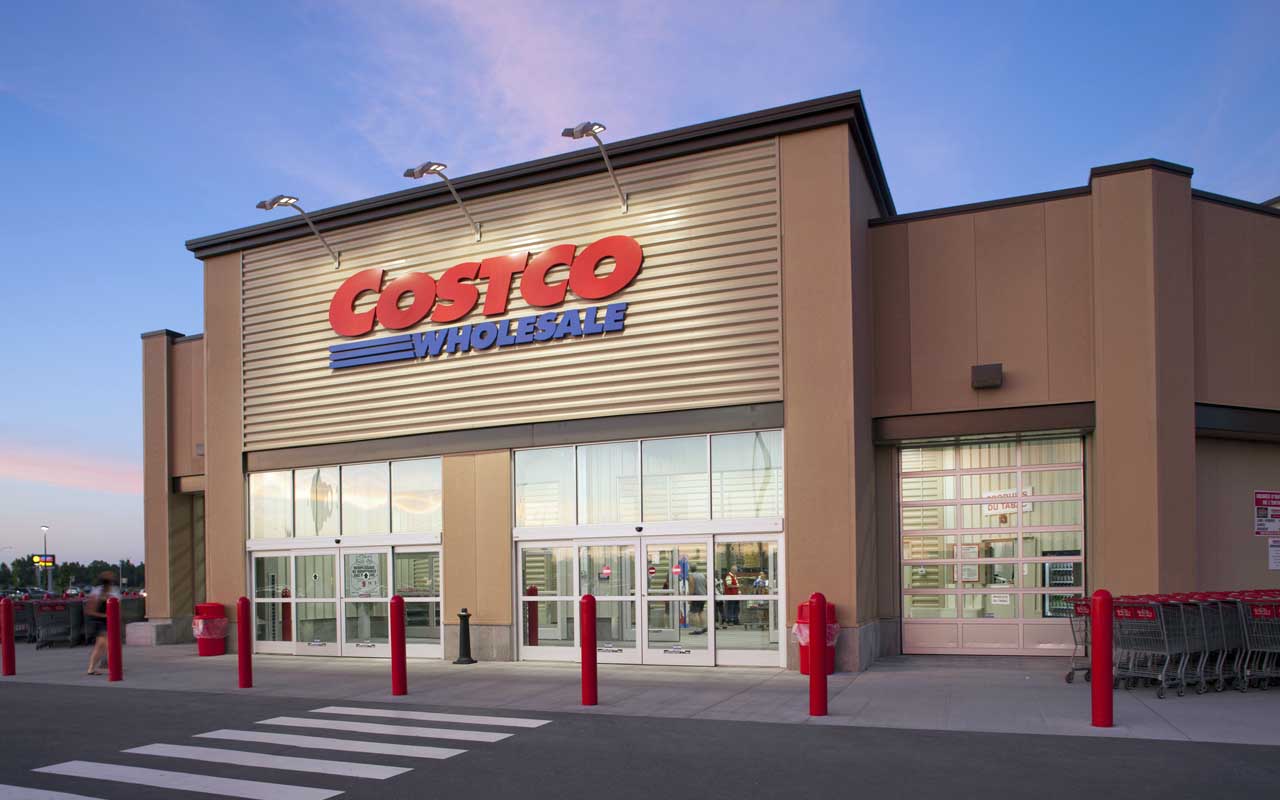
Costco
- Market value: $135.1 billion
- Dividend yield: 0.9%
- Percent of portfolio: 0.53%
- Date first acquired: Q1 2001
- Performance since Feb. 19: -5.3%
- Costco (COST, $305.97) joined the ranks of the Buffett stocks a long time back – the first quarter of 2001, to be precise. It's not a particularly large holding, at just more than half a percent of the Berkshire Hathaway portfolio, but it seems to be a cherished one.
Especially of late.
Unlike many retailers, Costco – and just about any other stock doling out groceries and other necessities – have gotten through the bear market relatively unscathed so far. Indeed, COST shares are actually up 4% year-to-date versus a steep loss for the S&P 500. In March, as people in many states geared up for stay-at-home orders, Costco saw overall sales jump by nearly 12%, including a massive 48% spike in online revenues. January and February sales weren't too shabby either, rising 8% and 14%, respectively.
And unlike many Buffett stocks, the Oracle is happy to talk about Costco at length.
"Here (Kraft Heinz) are, 100 years plus, tons of advertising, built into people's habits and everything else," Buffett told CNBC in a February 2019 interview. "And now, (Costco's) Kirkland, a private-label brand, comes along and with only 250 or so outlets, does 50% more business than all the Kraft Heinz brands."
Berkshire's 4.3 million shares represent a roughly 1% equity stake in the company – not insubstantial, but well outside Costco's top 10 institutional stakes.
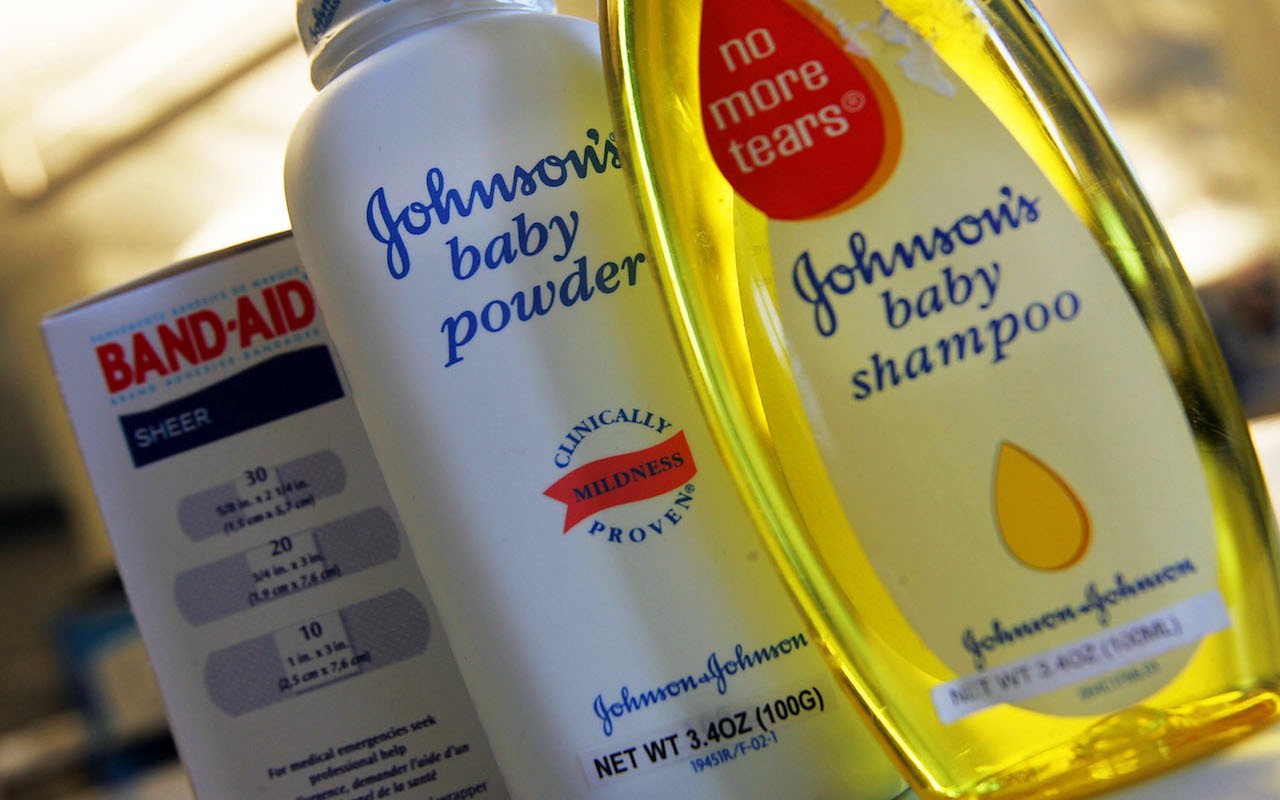
Johnson & Johnson
- Market value: $377.7 billion
- Dividend yield: 2.7%
- Percent of portfolio: 0.02%
- Date first acquired: Q1 2006
- Performance since Feb. 19: -3.8%
- Johnson & Johnson (JNJ, $143.26), like P&G, is another defensive Dow stock that has fallen out of favor with Buffett. BRK.B's interest peaked more than a decade ago. Now, the diversified health care giant represents nothing more than a token holding.
That's unfortunate, because JNJ would've provided some much-needed stabilization over the past few months. Although consumers have stopped spending on casinos, airplane tickets and other discretionary costs, they've plunked down to make sure they have plenty of Johnson & Johnson products for the long haul: Band-Aid, Benadryl and Tylenol.
But you can't blame Buffett for straying from J&J, given its history of headline-grabbing faceplants. The health care stock struggled with manufacturing problems and allegations of illegal marketing practices in 2010 and 2011. Buffett was critical of the company for those gaffes, as well as for using too much of its own stock in its 2011 acquisition of device-maker Synthes. Disenchanted with Johnson & Johnson, Berkshire dumped most of its stake in 2012.
Berkshire's current position comes to just 327,100 shares, which represents roughly 0.02% of shares outstanding. This is another holding that could disappear at any time – without making much of a difference, either.
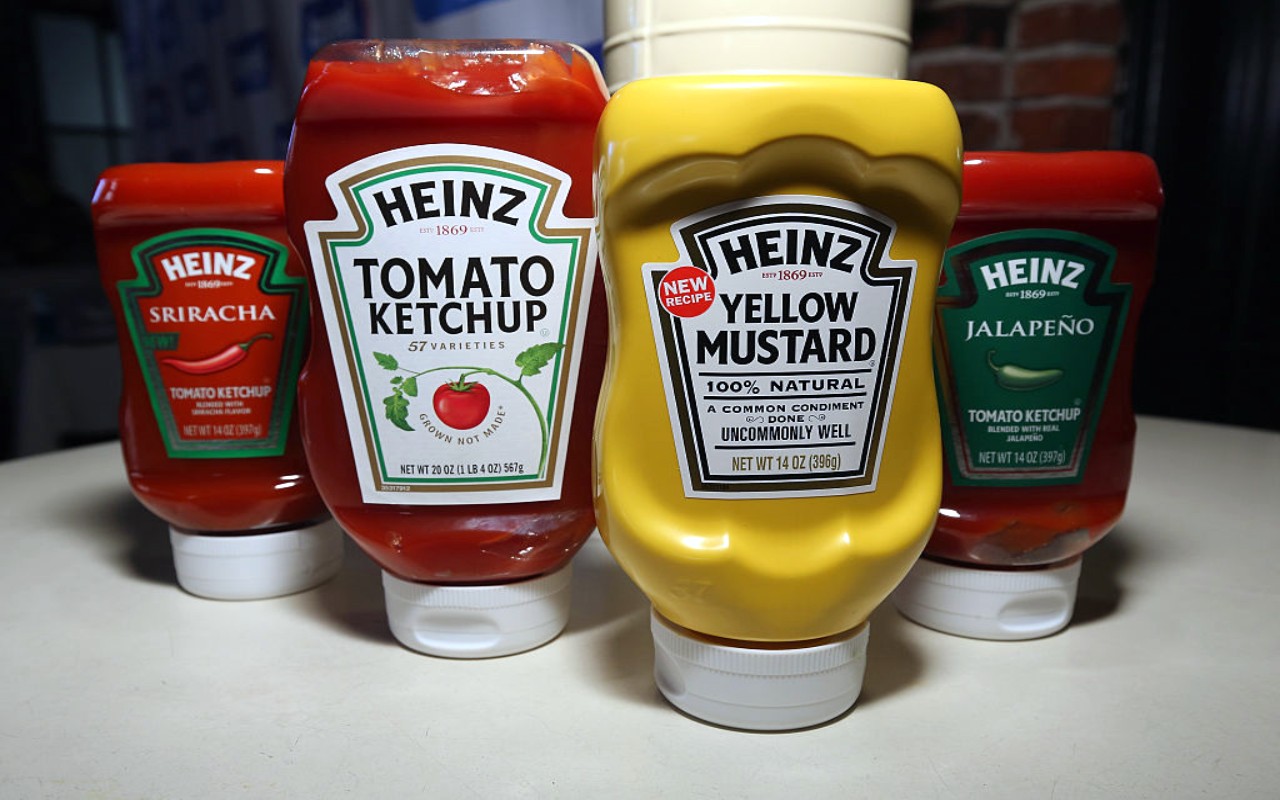
Kraft Heinz
- Market value: $33.4 billion
- Dividend yield: 5.9%
- Percent of portfolio: 4.32%
- Date first acquired: Q3 2015
- Performance since Feb. 19: Flat
- Kraft Heinz (KHC, $27.32) might be one of Buffett's best stocks over the past few months. But Warren Buffett likely still regrets his participation in what was one of his biggest deals of the past decade.
Kraft Heinz has put up flat performance against a deeply sagging market thanks to its position as a consumer staples leader. Kraft Heinz is the name behind oh-so-many brands that are seeing an uptick as people are forced to stay at home: Heinz condiments, Ore-Ida potato products, Oscar Mayer lunch meats, Classico pasta sauces, Kool-Aid drinks, Maxwell House coffee and, of course, Kraft Macaroni & Cheese.
In fact, KHC recently announced that the company expects 3% sales growth during the first quarter – much better than analysts were expecting, and a rare bit of good news for a company that has been mostly trouble for Uncle Warren.
Buffett was one of the driving forces behind the 2015 merger of packaged-food giant Kraft and ketchup purveyor Heinz to create Kraft Heinz. Berkshire Hathaway owns 26.7% of Kraft Heinz, making it the food company's second-largest shareholder. (Private investment firm 3G Capital – who teamed up with Berkshire in 2013 to purchase H.J. Heinz – is tops at 48.8%.) And it's Berkshire's sixth-largest stock investment with a market value of $10.5 billion as of the company's most recent Form 13F.
However, Berkshire Hathaway recorded a $3 billion non-cash loss from an impairment of intangible assets in 2018, "arising almost entirely from our equity interest in Kraft Heinz," Buffett wrote in his 2019 letter to shareholders. In early 2019, KHC wrote down the value of its brands by nearly $15 billion. And this year, Fitch downgraded the company's debt to junk status.
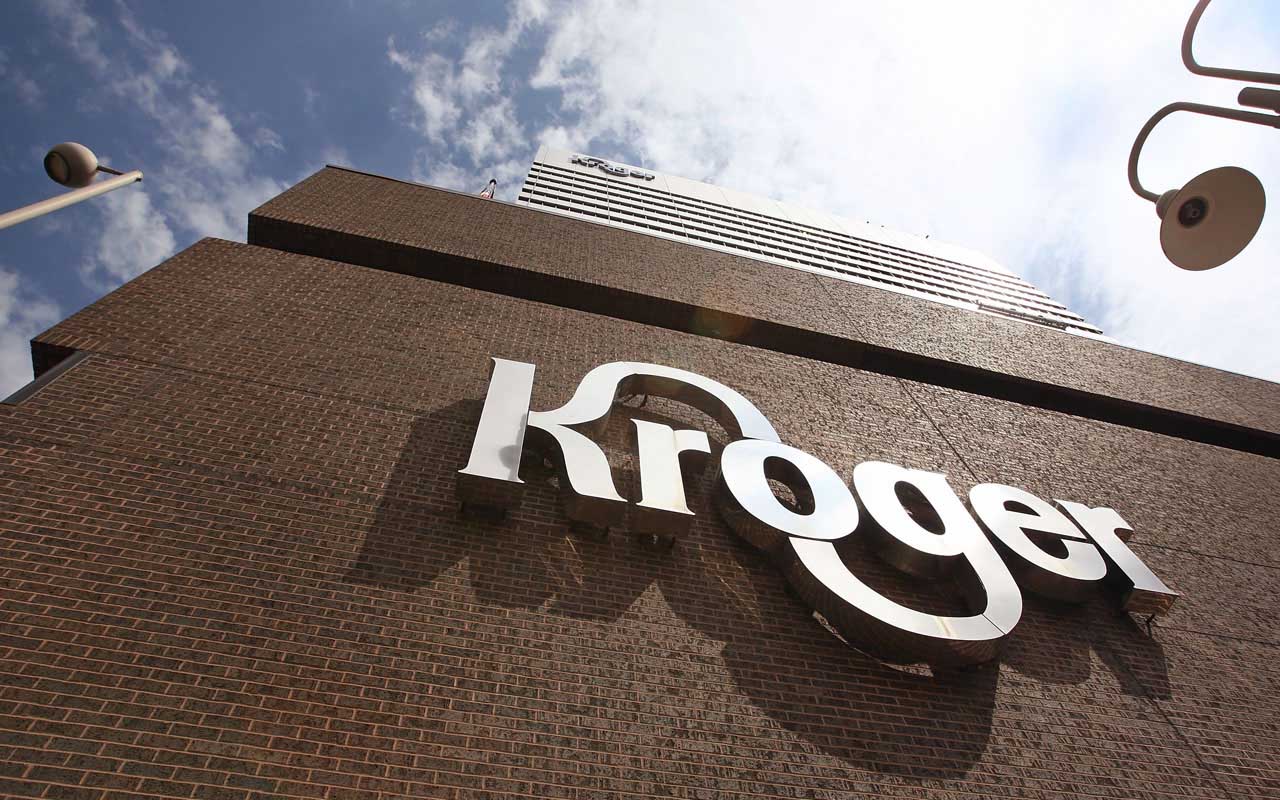
Kroger
- Market value: $24.1 billion
- Dividend yield: 2.1%
- Percent of portfolio: 0.23%
- Date first acquired: Q4 2019
- Performance since Feb. 19: +5.0%
Top among Buffett's best stocks since mid-February is one of his newest acquisitions.
- Kroger (KR, $31.02) is one of a handful of retailers allowed to remain open in many states. The nation's largest pure-play supermarket chain is not just an "essential service," but it has experienced frenzied buying as people stock up for their quarantines.
That stepped-up business isn't likely to go away soon, either, as people are expected to maintain some level of social distancing even after government mandates are pulled, whenever that might be.
KR has been an excellent defensive dividend holding in this bear market as a result.
Kroger admittedly was a bit of a head-scratcher when Buffett bought in. Many long-term investors had soured on traditional supermarket chains in a world where Walmart (WMT), Amazon.com and other large firms are vying to rule the grocery space.
It also was something of a reversal from Berkshire's other new positions, which have been a little more forward-looking. Kroger is an old-economy value play, compared to tech and biotech buys such as Amazon, Biogen, Apple (AAPL) and StoneCo (STNE).
Nonetheless, the company's roughly 2,760 retail food stores – operating under such banners as Dillons, Ralph's, Harris Teeter and its namesake Kroger – have given Buffett something to smile about over the past few months as his portfolio goes through a rough patch.
Profit and prosper with the best of Kiplinger's advice on investing, taxes, retirement, personal finance and much more. Delivered daily. Enter your email in the box and click Sign Me Up.

Dan Burrows is Kiplinger's senior investing writer, having joined the publication full time in 2016.
A long-time financial journalist, Dan is a veteran of MarketWatch, CBS MoneyWatch, SmartMoney, InvestorPlace, DailyFinance and other tier 1 national publications. He has written for The Wall Street Journal, Bloomberg and Consumer Reports and his stories have appeared in the New York Daily News, the San Jose Mercury News and Investor's Business Daily, among many other outlets. As a senior writer at AOL's DailyFinance, Dan reported market news from the floor of the New York Stock Exchange.
Once upon a time – before his days as a financial reporter and assistant financial editor at legendary fashion trade paper Women's Wear Daily – Dan worked for Spy magazine, scribbled away at Time Inc. and contributed to Maxim magazine back when lad mags were a thing. He's also written for Esquire magazine's Dubious Achievements Awards.
In his current role at Kiplinger, Dan writes about markets and macroeconomics.
Dan holds a bachelor's degree from Oberlin College and a master's degree from Columbia University.
Disclosure: Dan does not trade individual stocks or securities. He is eternally long the U.S equity market, primarily through tax-advantaged accounts.
-
 Ask the Tax Editor: Federal Income Tax Deductions
Ask the Tax Editor: Federal Income Tax DeductionsAsk the Editor In this week's Ask the Editor Q&A, Joy Taylor answers questions on federal income tax deductions
-
 States With No-Fault Car Insurance Laws (and How No-Fault Car Insurance Works)
States With No-Fault Car Insurance Laws (and How No-Fault Car Insurance Works)A breakdown of the confusing rules around no-fault car insurance in every state where it exists.
-
 7 Frugal Habits to Keep Even When You're Rich
7 Frugal Habits to Keep Even When You're RichSome frugal habits are worth it, no matter what tax bracket you're in.
-
 Stocks Sink With Alphabet, Bitcoin: Stock Market Today
Stocks Sink With Alphabet, Bitcoin: Stock Market TodayA dismal round of jobs data did little to lift sentiment on Thursday.
-
 Dow Leads in Mixed Session on Amgen Earnings: Stock Market Today
Dow Leads in Mixed Session on Amgen Earnings: Stock Market TodayThe rest of Wall Street struggled as Advanced Micro Devices earnings caused a chip-stock sell-off.
-
 Nasdaq Slides 1.4% on Big Tech Questions: Stock Market Today
Nasdaq Slides 1.4% on Big Tech Questions: Stock Market TodayPalantir Technologies proves at least one publicly traded company can spend a lot of money on AI and make a lot of money on AI.
-
 Fed Vibes Lift Stocks, Dow Up 515 Points: Stock Market Today
Fed Vibes Lift Stocks, Dow Up 515 Points: Stock Market TodayIncoming economic data, including the January jobs report, has been delayed again by another federal government shutdown.
-
 Stocks Close Down as Gold, Silver Spiral: Stock Market Today
Stocks Close Down as Gold, Silver Spiral: Stock Market TodayA "long-overdue correction" temporarily halted a massive rally in gold and silver, while the Dow took a hit from negative reactions to blue-chip earnings.
-
 Nasdaq Drops 172 Points on MSFT AI Spend: Stock Market Today
Nasdaq Drops 172 Points on MSFT AI Spend: Stock Market TodayMicrosoft, Meta Platforms and a mid-cap energy stock have a lot to say about the state of the AI revolution today.
-
 S&P 500 Tops 7,000, Fed Pauses Rate Cuts: Stock Market Today
S&P 500 Tops 7,000, Fed Pauses Rate Cuts: Stock Market TodayInvestors, traders and speculators will probably have to wait until after Jerome Powell steps down for the next Fed rate cut.
-
 S&P 500 Hits New High Before Big Tech Earnings, Fed: Stock Market Today
S&P 500 Hits New High Before Big Tech Earnings, Fed: Stock Market TodayThe tech-heavy Nasdaq also shone in Tuesday's session, while UnitedHealth dragged on the blue-chip Dow Jones Industrial Average.
